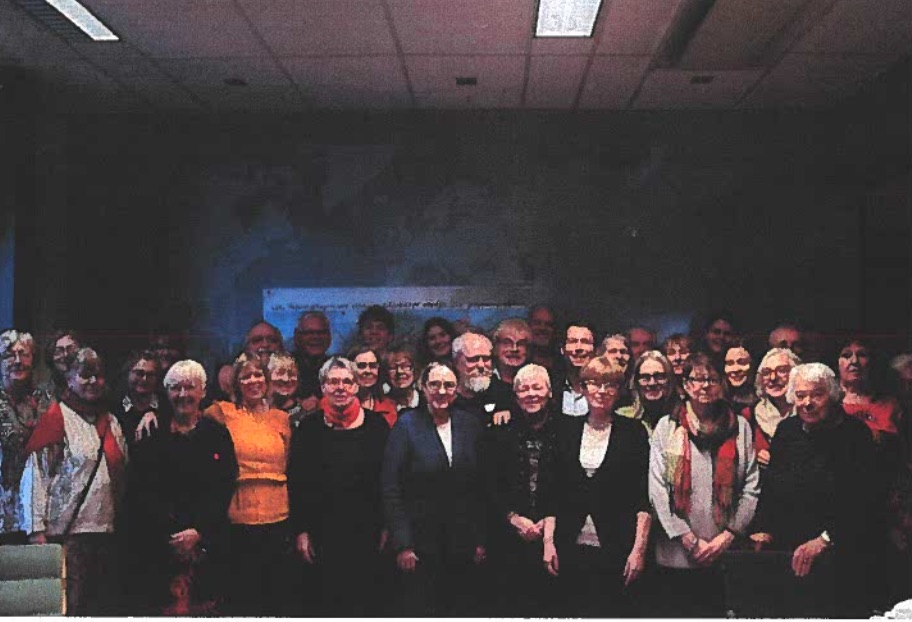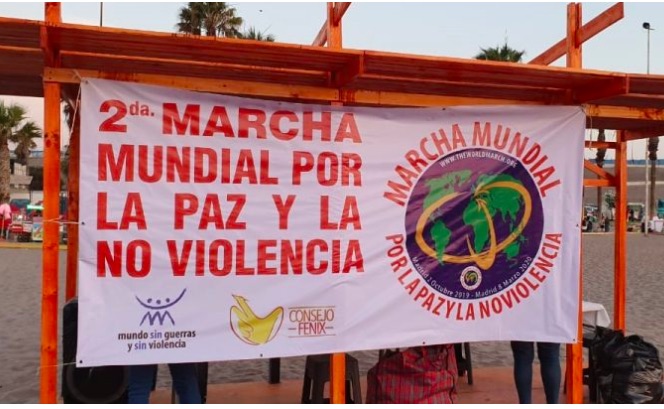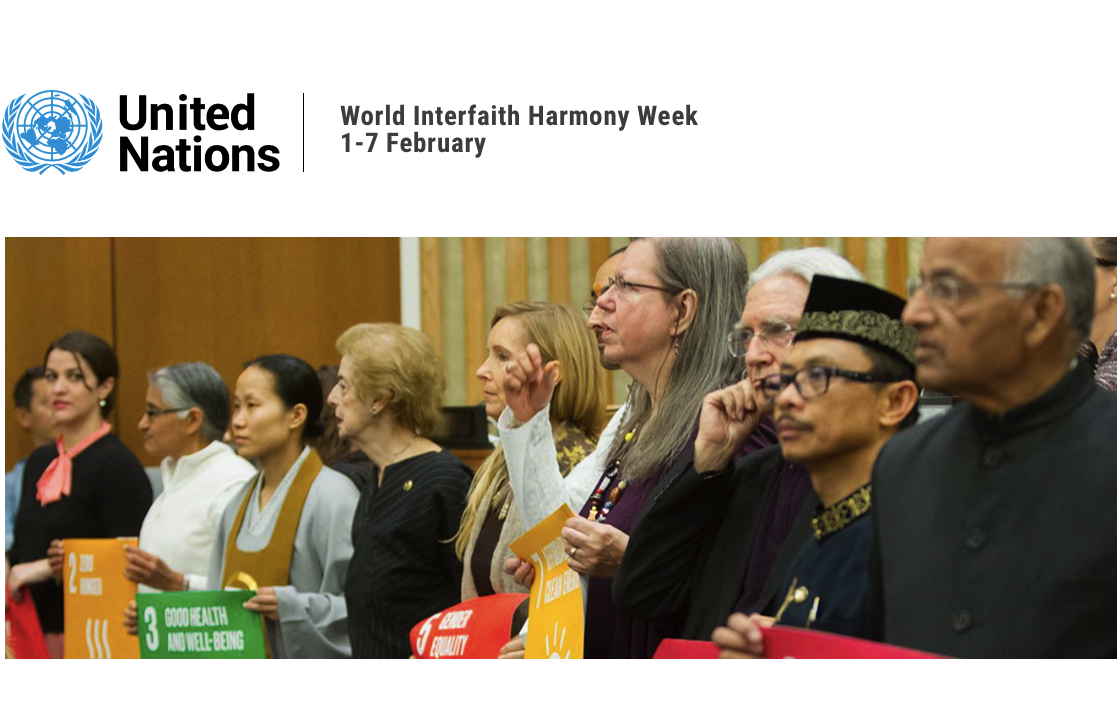. . SUSTAINABLE DEVELOPMENT . .
A report from Democracy Now (licensed under a Creative Commons Attribution-Noncommercial-No Derivative Works 3.0 United States License. )
A major anti-pipeline struggle continues in Canada, where protests have broken out across the country in solidarity with Wet’suwet’en land defenders whose sovereign land in northern British Columbia was raided last week and over the weekend by Canadian police. Dozens were arrested in the days-long raid of unceded indigenous territories, where hereditary chiefs have been in a protracted battle to protect their land from the construction of TransCanada’s 400-mile, $4.7 billion Coastal GasLink pipeline. The raids took place about 700 miles north of Vancouver and sparked outrage across the country. In Ontario, a Mohawk solidarity protest has shut down the Canadian National Railway for days, halting travel for tens of thousands of passengers. Canadian Prime Minister Justin Trudeau called for a quick resolution to the protests on Wednesday. In New York, protesters on Wednesday gathered for a sit-in outside the United Nations headquarters in solidarity with Wet’suwet’en land defenders.

video of Democracy Now broadcast
For more, we go to Wet’suwet’en territory, where we’re joined by land defender and matriarch Molly Wickham. Her clan, the Gidimt’en Clan, was raided last week by 60 heavily militarized officers with assault rifles and dogs. And in Toronto, we’re joined by Pamela Palmater, Mi’kmaq lawyer and member of the Eel River Bar First Nation in New Brunswick. She is the chair in indigenous governance at Ryerson University.
AMY GOODMAN: This is Democracy Now! I’m Amy Goodman, as we go to a major anti-pipeline struggle in Canada, where protests have broken out across the country in solidarity with Wet’suwet’en land defenders, whose sovereign land in northern British Columbia was brutally raided last week and over the weekend by Canadian police. Dozens were arrested in the days-long raid of unceded indigenous territories, where hereditary chiefs have been in a protracted battle to protect their land from the construction of TransCanada’s 400-mile, $4.7 billion Coastal GasLink pipeline. The raids took place about 700 miles north of Vancouver. This is a land defender confronting armed police officers last week.
LAND DEFENDER: We are here for humanity, for life! We are unarmed! We are peaceful! You are killers! You are genocidal maniacs! You have your guns pointed at us!
AMY GOODMAN: The raids have sparked outrage across Canada and the world. In Ontario, a Mohawk solidarity protest has shut down the Canadian National Railway for days, halting travel for tens of thousands of passengers. Prime Minister Justin Trudeau called for a quick resolution to the protests on Wednesday. In fact, his offices were occupied.
Well, for more, we go to Wet’suwet’en territory, where we’re joined by land defender, matriarch Molly Wickham. Her clan, the Gidimt’en Clan, was raided last week by 60 heavily militarized officers with assault rifles and dogs. And in Toronto, we’re joined by Pamela Palmater, Mi’kmaq lawyer and member of the Eel River Bar First Nation in New Brunswick, chair of the indigenous governance at Ryerson University.
We welcome you both to Democracy Now! Molly Wickham, let’s begin with you. You’re right there at the Wet’suwet’en Nation. Can you talk about what is happening? Explain what the conflict is around this pipeline.
MOLLY WICKHAM: The conflict that has been going on around this pipeline has been going on for years. This isn’t something new. Last year, on January 7th, we were also raided by heavily militarized RCMP with lethal overwatch and —
AMY GOODMAN: And let me explain: RCMP is Royal Canadian Mounted Police, for the non-Canadian audience.
MOLLY WICKHAM: Oh, right, yes. And so, this is the second year in a row. And actually, the raid happened on the exact same location a year and a month after the raid that happened last year. And so this has been an ongoing battle. But it’s also a bigger issue around indigenous rights and title and sovereignty of our nation. We have a hereditary system that’s in place, that has never been extinguished. Our traditional governance system is in place, and this is a conflict between that governance system and colonization and the imposition of Indian Act ban systems, which were — came in through the Indian Act from the federal government and are being used against our own people to try and undermine our decision-making and our inherent right to make decisions and protect our territory.
AMY GOODMAN: Can you explain what happened during the most recent arrests of the matriarchs performing a ceremony for missing and murdered indigenous women? If you can talk about the wearing of the red dresses and exactly what happened? And were you arrested, as well?
MOLLY WICKHAM: So, what happened up at Unist’ot’en — they’re our neighboring clan. We have five clans within the nation, and each clan is responsible for their territory. And so, they were doing a ceremony because they have a man camp that is built on their territory, which is supposed to house 400 men, 400 foreign workers that are coming from all different parts of so-called Canada and externally, and they’re not from our community. And we have a huge rate of murdered and missing indigenous women, especially in the north here, where our territory lies. The highway that runs through our territory is called the “Highway of Tears” because of the number of murdered and missing indigenous women. And so, they have been bringing attention to that fact, that these man camps bring increased rates of violence, increased rates of murder against our women, increased rates of domestic abuse and violence and drug abuse and alcohol abuse in our communities. And that’s what they were performing there. I was not at the Unist’ot’en Camp. I wasn’t arrested. I was one of the ones that was arrested last year. And currently I’m seven months pregnant and wasn’t permitted to be out on our territory during the raids.
AMY GOODMAN: And can you talk about who owns Coastal GasLink? What is this project?
MOLLY WICKHAM: This is a project owned by TC Energy. They changed their name after last year. And they —
AMY GOODMAN: TC being TransCanada?
MOLLY WICKHAM: TransCanada, yeah. And so, they legally changed it to TC Energy. But this project has been ongoing for quite a while. They’ve had different investors, mostly Shell, Shell Canada. And they just received investment, new investment, by AIMCo, just recently, and that’s not quite finalized yet. But it’s very — they’re walking a tight line in terms of companies that want to invest in this project. LNG Canada is one of the biggest investments. And that’s the terminal that is looking to transport and liquefy the natural gas, or the fracked gas. And that project hasn’t gotten off the ground. And so, everybody talks about it as if it’s a done deal, but the actual terminal itself has not been built in Kitimat.
(Report continued in right column)
Indigenous peoples, Are they the true guardians of nature?
(Report continued from left column)
AMY GOODMAN: In Ontario, a Mohawk solidarity protest has shut down the Canadian National Railway for days, halting travel for tens of thousands of passengers. I want to turn to Prime Minister Justin Trudeau responding to the solidarity protests.
PRIME MINISTER JUSTIN TRUDEAU: We recognize the important democratic right, and we will always defend it, of peaceful protest. This is an important part of our democracy in Canada. But we are also a country of the rule of law, and we need to make sure those laws are respected. That is why I will be — I am encouraging all parties to dialogue to resolve this as quickly as possible.
AMY GOODMAN: So, that’s the Canadian Prime Minister Justin Trudeau, whose own offices were occupied. Pamela Palmater is also with us, the Mi’kmaq lawyer and member of the Eel River Bar First Nation in New Brunswick, chair of indigenous governance at Ryerson University. Can you talk about the solidarity protests that are taking place across Canada, including directly in the prime minister’s office?
PAMELA PALMATER: Yeah. Well, there’s lots —
AMY GOODMAN: And respond to what he said.
PAMELA PALMATER: Yeah, there’s lots of solidarity protests. I mean, it’s the Mohawk, the Haudenosaunee peoples shutting down rails. And there’s lots of people. There was youth and others standing in solidarity at various legislatures, preventing access, occupying minister’s offices, also shutting down ports. There are people shutting down bridges, shutting down highways. Because this is a repeat offense. And you can’t attack indigenous peoples in a worse way than sending in the Royal Canadian military — Royal Canadian —
AMY GOODMAN: Mounted Police.
PAMELA PALMATER: RCMP, yeah, Mounted Police. I can’t get away from the militarized version of them. And how they’re always so heavily armed, how we found out that they were authorized for, quote-unquote, “lethal overwatch,” to use as much violence as possible against the Wet’suwet’en people to literally remove them from their homes, outside of Canada’s Constitution, in breach of Canada’s so-called rule of law, in breach of Wet’suwet’en law, in breach of international law. And so, indigenous peoples all across the country feel this, because this has happened in Oka, this has happened in Miꞌkmaq territory with Elsipogtog. You know, it’s happened in Standing Rock. It’s happened all over Turtle Island. And so, when the RCMP attack the Wet’suwet’en, they also attack us. So we raised in solidarity. And it’s often categorized as an anti-pipeline protest, but I don’t think that’s accurate. It is for some, but for most of us it’s about protecting our indigenous sovereignty and our land rights, which are the two issues that have never been resolved, and they’re always trumped, they’re always breached, despite how many court cases or how many international protections we have.
And for me, I find it really upsetting that the prime minister, who is not even in Canada, who is actually traveling the world trying to campaign for a seat on the United Nations Security Council, you know, in order to maintain peace and security worldwide, can’t do that or follow the rule of law here in Canada. And as you know, the RCMP denied media access to record what was happening, to be able to report on what was happening, removed media people, arrested some of the media. So, they’re reaching their own Constitution, their own Charter of Rights, yet they espouse the rule of law. And to my mind, what he’s really talking about is the law of rulers. They pick and choose which laws suit their economic and political purposes, while at the same time continuing to commit genocide against indigenous peoples, because we know from the national inquiry one of the ways to commit genocide against indigenous peoples is to forcibly remove them from their lands, which is something that is completely prohibited under the United Nations Declaration on the Rights of Indigenous Peoples, which is now supposed to be law in B.C.
AMY GOODMAN: Can you explain how the Wet’suwet’en system of governance, how it has affected how hereditary chiefs have tried to engage with the governments of Canada and British Columbia on this pipeline issue? Pamela Palmater?
PAMELA PALMATER: Is that a question for Molly? Oh, sorry. Well, I don’t speak for the Wet’suwet’en, but what I know from talking to Wet’suwet’en peoples, like Molly and other hereditary leaders, is that, you know, this isn’t new. This is something that —
AMY GOODMAN: Well, let me put that question to Molly Wickham. Molly, if you can explain how the hereditary chiefs work and how that has affected their communication with both Canada and British Columbia and the company?
MOLLY WICKHAM: So, we have 13 house chiefs. We have five clans. And our house chiefs are the speakers on behalf of the clans collectively. We’ve maintained this system. Our laws are solidified and ratified in our feast hall, in our potlatch, which was banned by the federal government. And so, this is the way that we have always governed ourselves. This is the way that we are moving forward with this movement, is that it’s our traditional leadership and our hereditary system that are making the — speaking on behalf of our decision-makers, which are our clans and our chiefs.
And so, the company has actively undermined — the federal government and the provincial government have actively undermined our system of governance by going to elected band councils, which were imposed by the Indian Act and the federal government. And so, we are asserting ourselves, as we always have. We’ve never been — you know, we’ve always been on our territories. We’ve always occupied our territories. We’ve always used this system of governance and collective decision-making to say and discuss what is and what is not allowed on our territory. And we have very strong trespass laws. And Coastal GasLink, TC Energy, the province and the federal government are providing false authority and false permission, unauthorized permission, on lands that we hold full jurisdiction to, to make decisions on.
AMY GOODMAN: To settle this, can you pronounce, Molly Wickham, “Wet’suwet’en”? Can you pronounce your nation?
MOLLY WICKHAM: Yes. We are the Wet’suwet’en Nation, and I belong to the Gidimt’en Clan. It’s one of the five clans of the nation.
AMY GOODMAN: And are the raids over? And what is happening with the actual pipeline being built? And what are you demanding of the Canadian government?
MOLLY WICKHAM: We had three raids on Gidimt’en territory alone over the course of five days, and it resulted in 21 arrests of our camps, of our territory, 15 of which are moving forward with charges against our land defenders, heavily militarized police force coming in and removing everybody from the territory. And so, they were not successful in removing our entire camp at Gidimt’en at 44 kilometer, where the raid happened last year, so we still have people that are there. We have people that are moving back in. The tactical teams have left the area, but there’s still a huge RCMP presence and police presence on our territory. The chiefs have — they served an eviction notice on February 4th — or, January 4th to all Coastal GasLink employees on 22,000 square kilometers of our territory. And that eviction notice still stands. And that eviction notice will continue to be enforced by the Wet’suwet’en according to Wet’suwet’en law.
AMY GOODMAN: Molly Wickham, I want to thank you so much for being with us, land defender, chief, matriarch of the Gidimt’en Clan of Wet’suwet’en Nation. And Pamela Palmater, Mi’kmaq lawyer, member of the Eel River Bar First Nation in New Brunswick, thank you so much for joining us, as we continue to cover that struggle.









